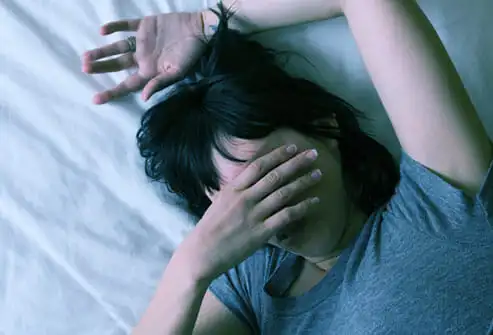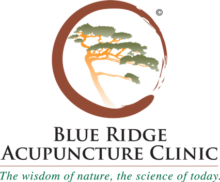Insomnia and Sleep problems: Chinese and western medical approaches
By Tai Lahans DOM
Conventional medicine and Insomnia
From a conventional medical point of view, there are two types and varying depths of sleep. NREM ( non-rapid eye movement ) sleep accounts for about 75% of sleep time. It is the initial phase of sleep characterized by slow EEG waves ( brain waves ), lowered respiratory and heart rates and lowered muscle tone. REM ( rapid eye movement ) sleep occupies the remainder of sleep time. The EEG waves are low voltage but fast activity, and occur 5 – 6 times during a normal night’s sleep. Rate and depth of respiration are increased but muscle tone is depressed even lower than in NREM sleep. REM always follow NREM sleep and ends each sleep cycle.

Norepinephrine pathways in the brainstem are implicated in REM sleep. Serotonergic pathways are implicated in NREM sleep. Most dreaming occurs during REM. Most nightmares and sleep walking and talking occur in NREM stages 3 and 4. Interruption of REM sleep produces hyperactivity and emotionally labile behavior. This is why sleep deprivation is a torture technique in order to gain information.
Western medicine divides sleep disorders into several different categories:
- initial insomnia – cannot fall asleep
- early morning waking – wakes several hours before the usual time
- inverted sleep pattern – sleep during the day and awake at night, common in the elderly
- primary insomnia – longstanding insomnia with an apparent relationship to a somatic or psychic event
- secondary insomnia – due to acquired pain, anxiety and depression
Delta sleep is a deeper level of REM during which growth hormone is secreted by the pituitary gland. This is the only time this occurs in adults, and most tissue repair happens during this time. Lack of delta sleep can lead to chronic illness due to to toxicity and lack of rehabilitation of normal tissue function.
Western treatment for insomnia is based on sedatives, hypnotics, minor tranquilizers, and anxiolytics depending on the diagnosis and presentation of the patient. Many have side effects like symptoms akin to a hang-over and some are addicting.
Chinese medicine and Insomnia
In Chinese medicine insomnia is usually divided into deficiency and excess type. Deficiency type relates to yin and blood deficiencies and places emphasis on the heart, spleen, liver and kidney. Excess relates to food stagnation and phlegm and phlegm heat. Therefore, emphasis is placed on the middle burner and especially the gallbladder.
The wei qi ( a form of protective qi or immunity ) circulates externally 12 times during the daytime and internally 12 times during the night. This allows for deeper organ level detoxification at night. It probably is akin to the fact that growth hormone is secreted at night to allow for tissue repair. When sleep is poor then certain hormonal levels are interrupted and disturbed. For example, adrenal function is disturbed when sleep is disturbed over a period of time. Also, blood sugar issues affect sleep…if a person drinks to much alcohol or too much sugar before bed, they often wake up between 1-4am. This is because their body has taken up all the blood sugar with insulin, and then their blood sugar drops while they are asleep causing their adrenal cortex to release adreanline and cortisol.
There are four main types of insomnia Chinese medicine considers:
- too much thinking or cogitating
- too much activity
- too much food
- too much anger
These are called “ the four toos “ in China.
Treatment involves accurate diagnosis and then the use of primarily herbal medicine:
- In the too much thinking realm which is a deficiency type of insomnia the main treatment is called Gui Pi Tang which nourishes the heart and spleen and blood.
- In the yin deficiency realm the treatment is Tian Wang Bu Xin Tang
- In the phlegm realm treatment is Wen Dan Tang
- In the food stasis realm treatment is with Bao He Wan
- In the too much anger realm acupuncture treatment is the main intervention, along with modified Xiao Yao San and Suan Zao Ren Tang
Lifestyle changes are specific for each type. But some commonalities include:
- Have a nighttime routine that begins two hours before bed and helps you to begin to get quiet. Turn off many of the lights in the house. Start putting your house to bed.
- Cool down your home. At night your core temperature falls and your extremities may get slightly warmer. This is natural. Turn off the heat or at least turn it down to 50*.
- Take the television out of the bedroom. Your bedroom is for sleeping and quiet time.
- Do not eat late at night. Food that is in your stomach at bedtime will generally sit there until your get up. This is unhealthy and bad for your digestion and can impede sleep.
- Meditating daily helps sleep at night. It allows your mind to train itself to be quiet.
- Try not to sleep during the daytime. If you need to, nap for only one half hour in the early afternoon.
- Exercise will help sleep. The human body is an animal and it loves routines. Having an exercise routine, especially in the earlier part of the day, is part of a habit that will enable you to sleep better partially because it is a habit ( a good one ), and partially because it discharges stress and negative emotions that may keep you awake.
When it comes to diet some traditions say that we should eat breakfast like a king, lunch like a prince, and dinner like a pauper. In other words, dinner should be our smallest and lightest meal. Of course, we do it the opposite. Try and switch your eating routine to one that puts you in bed with only a light supper of easy to digest foods in your digestive tract.
There are many nutritional supplements that are often used to help with sleep, and it is best to consult an expert to find out which is best suited to your constitution:
- Valerian
- Kava kava
- Chamomile
- Passion flower
- Melatonin
- Vitamin B6
- Tryptophan
Almost all patients with restless leg disorder have nocturnal myoclonus. These conditions can impede sleep and should be diagnosed by a medical practitioner. Acupuncture can help myoclonus or restless leg syndrome.
Acupuncture and Insomnia
Acupuncture has been shown to improve sleep and to help with insomnia. Acupuncture has been used for insomnia and sleep disorders in China for thousands of years. From a biochemical perspective acupuncture stimulates the brain to release opioid like chemicals that relax a person without side effects. Acupuncture can also help a person reduce stress, balance blood sugar and return to balance.
To learn more about acupuncture for insomnia or sleep issues call 828-254-4405
